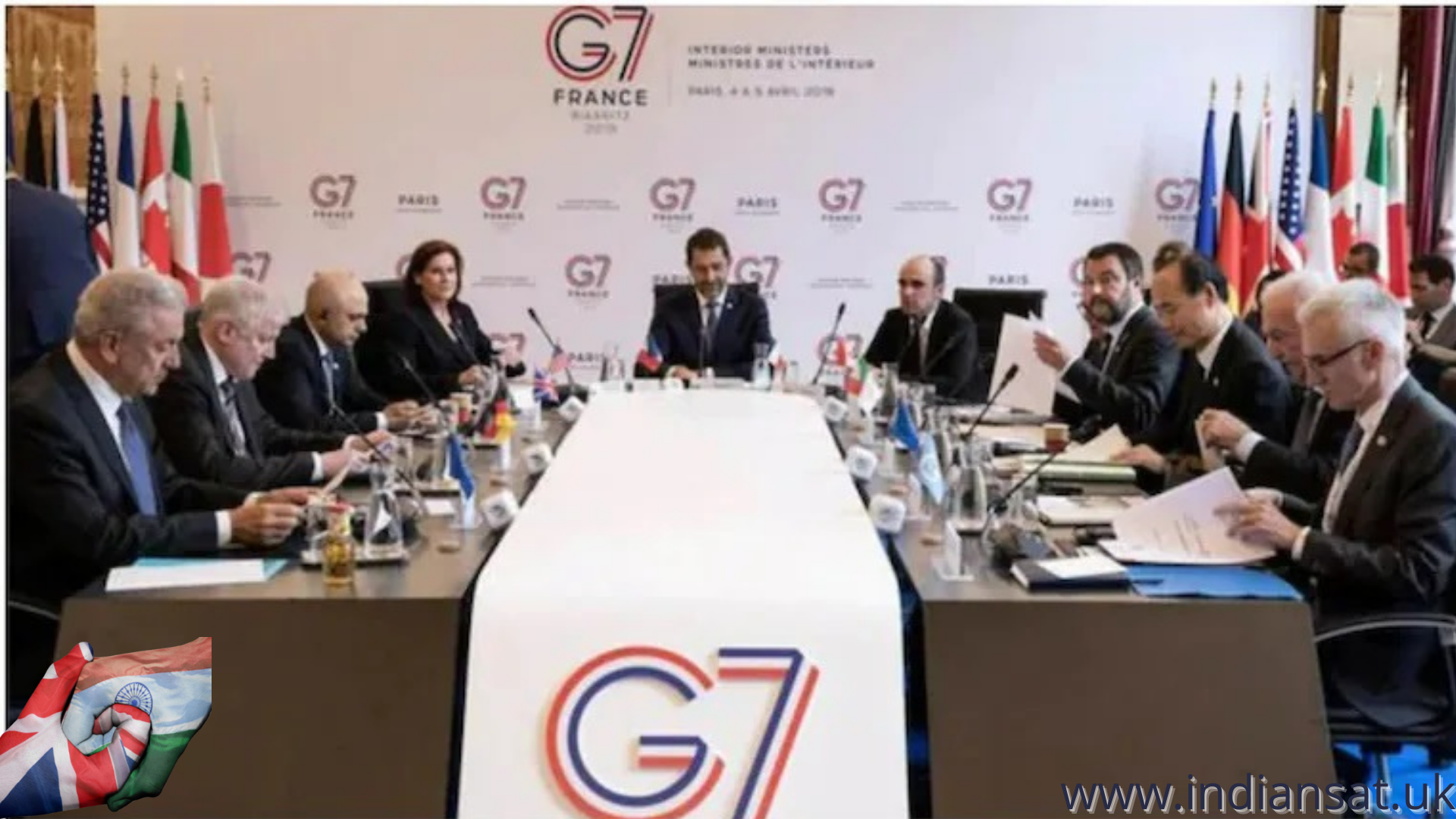The G7 comprises the US, UK, France, Germany, Italy, Canada and Japan. The UK currently holds the presidency of the G7 and has invited India, along with Australia, Republic of Korea and South Africa, as guest countries for the Summit.
At the invitation of UK Prime Minister Boris Johnson, Prime Minister Narendra Modi will participate in the Outreach Sessions of the G7 Summit on June 12 and June 13, in virtual format.
What is on the agenda of G-7 this year?
The G7 comprises the US, UK, France, Germany, Italy, Canada and Japan. The UK currently holds the presidency of the G7 and has invited India, along with Australia, Republic of Korea and South Africa, as guest countries for the Summit. The meetings will be held in hybrid mode.
The theme for the summit is ‘Build Back Better’ and the UK has outlined four priority areas for its presidency. These are leading the global recovery from coronavirus while strengthening resilience against future pandemics; promoting future prosperity by championing free and fair trade; tackling climate change and preserving the planet’s biodiversity; and championing shared values and open societies.
The leaders are expected to exchange views on the way forward for the world amid the pandemic, with focus on health and climate change.
Is India attending it for the first time?
Since 2014, this is the second time PM Modi will be participating in a G7 meeting. India had been invited by the G7 French Presidency in 2019 to the Biarritz Summit as a “Goodwill Partner” and the Prime Minister participated in the Sessions on ‘Climate, Biodiversity and Oceans’ and ‘Digital Transformation’.
During Prime Minister Manmohan Singh’s UPA rule, India attended the G8 five times.
Russia was indefinitely suspended in March 2014 after the annexation of Crimea, reducing the count of the G8.
So, what’s new?
While the UK has invited India this year, the US under President Donald Trump had also extended an invitation to India last year.
Calling the G7 a “very outdated group” in May last year, Trump had said he would like to include India, Australia, South Korea and Russia in the grouping of the largest advanced economies. The former US president had suggested that the Group of 7 be called “G10 or G11” and proposed that the grouping meet in September or November 2020.
That, however, did not happen owing to the pandemic and the US elections’ outcome.
This year, while Modi was expected to go to the UK for the summit, the pandemic situation in the country prompted him to cancel the visit.
What to watch out for at this G-7 summit?
This will be President Biden’s first visit to Europe, where he will signal his key message “America is back”. He has flown down to the UK, where he will meet British Prime Minister Boris Johnson, Queen Elizabeth II and other allies at the G7 summit. He’ll continue on to a NATO conclave in Brussels on June 14, before his conversation with Russian President Vladimir Putin in Geneva two days later.
This sequencing of events has been done to coordinate Washington’s moves of consultations with allies before meeting the Russian President.
This ties in well with the US President’s initial foray into multilateralism — he held the first summit of leaders of “the Quad” — Australia, India, Japan and the US. This was aimed at increasing vaccine production and aligning their positions toward Beijing.
Biden will announce a major new initiative to vaccinate the world against Covid-19 ahead of the G7 summit.
According to US media reports, the Biden administration is set to buy 500 million doses of the Pfizer/BioNTech vaccine for international distribution. Doses will be aimed at developing countries.
“We were the arsenal of democracy in World War II. We’re going to be the arsenal of vaccines,” NSA Jake Sullivan said.
The Group of Seven will make a further joint declaration on “a comprehensive plan to help end this pandemic as rapidly as possible,” Sullivan said.
Why is the Biden-Putin meeting important?
The US-Russia relations are going through a rough patch — some analysts even refer to it as possibly their nadir since the end of the Cold War.
Interestingly, the venue of the Biden-Putin meeting — Geneva — is the place where then US President Ronald Reagan held his first meeting with Soviet Union’s Mikhail Gorbachev in 1985.
While Washington’s intelligence apparatus believes that Putin authorised operations in 2020 which were directly aimed at manipulating the elections and hurting Biden’s chances of becoming the President, the Biden administration has put sanctions against Russia for a hack and jailing of opposition leader Alexei Navalny.
The key element that is making Washington take the important step of engaging with Moscow to contain the damage in their bilateral ties is that the US wants to focus on its strategic rival, China.
What’s in it for India?
India has a lot at stake.
India has long called for reforming global institutions and groupings to reflect modern-day geopolitical realities. Trumps’ offer to expand G7 fitted into New Delhi’s idea of being part of the global high table. With an assertive China looming, the US is calling all like-minded countries to partner in dealing with Beijing. If Biden and Johnson want to take the leap forward and constitute a global democratic alliance of 10-11 countries, it will be an important signal.
As India faces a massive shortage of vaccines, Delhi will be watching the allocation announced by the US President very carefully.
Last week, the US had said that it will distribute vaccines to India as part of it’s “strategy for global vaccine sharing”, days after External Affairs minister S Jaishankar met key officials in the administration in Washington DC.
While US President Joe Biden made the announcement, Vice President Kamala Harris had called up PM Modi about Washington’s plans to make vaccines against Covid-19 available to other countries, including India.
A US statement said that the Biden-Harris administration will begin sharing the “first 25 million doses of Covid vaccines” as part of the framework for sharing at least 80 million vaccines globally by the end of June.
This means that India is likely to get vaccines from the US — both directly as well as through COVAX. Initial estimates suggest India will get about 2 to 3 million vaccines in the first tranche.
On Washington’s rapprochement with Moscow, New Delhi will be extremely relieved as the US can then focus on China. While that is easier said than done, drawing away Russia from Beijing could be one of the game-changers in current geo-politics.
![]()






